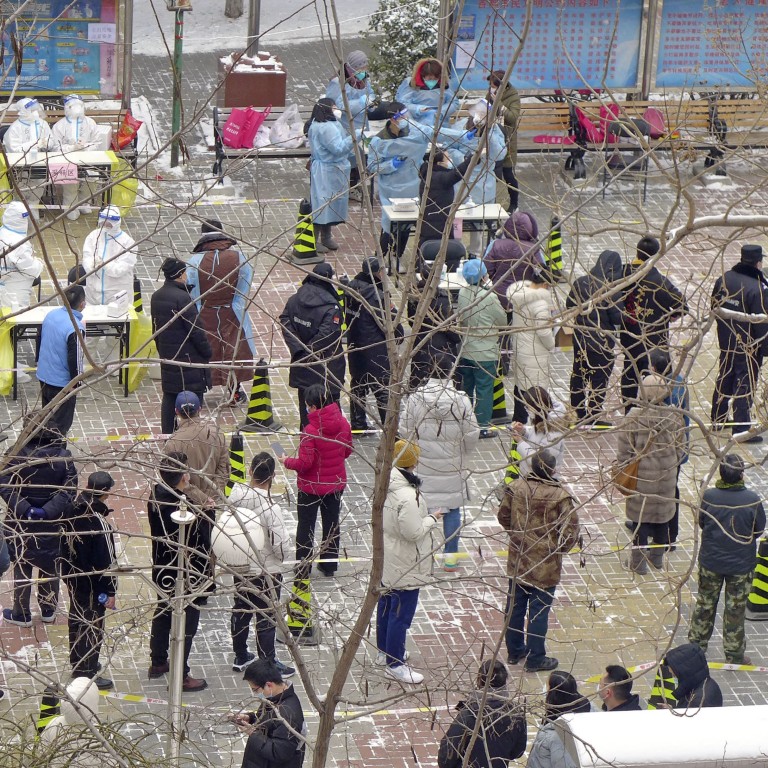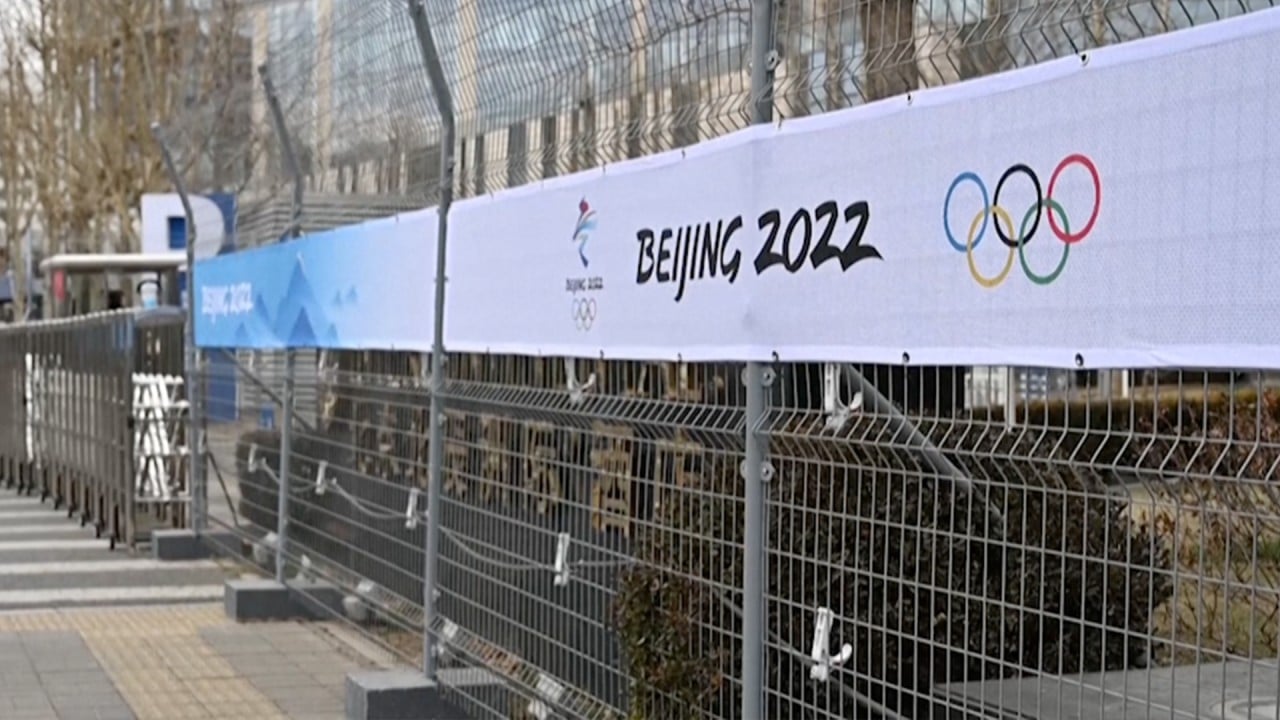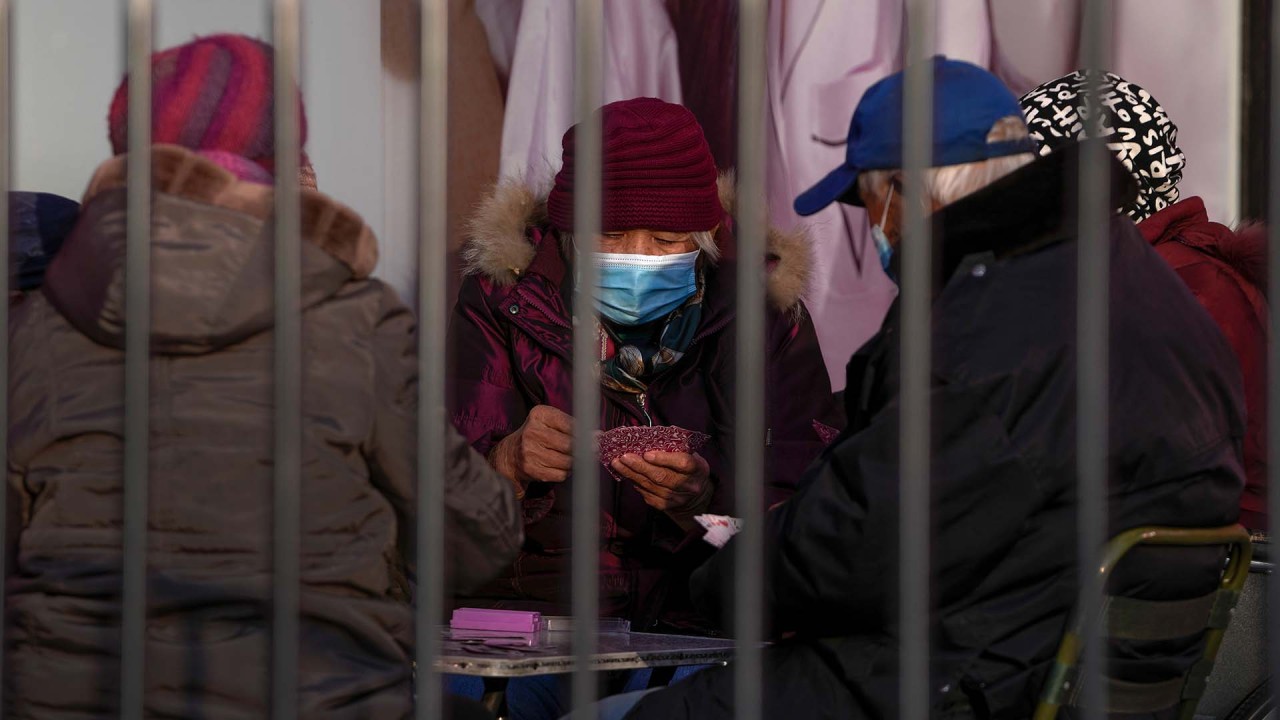
Beijing district on coronavirus testing alert in countdown to the Winter Olympics
- Fengtai in the Chinese capital’s southwest launches plan to collect samples from 2 million people in one day
- Cases of the Delta variant in Shandong and Shanxi traced to cold chain facility in the city
Authorities in Fengtai district aimed to collect samples from its 2 million residents in one day, fearing the area in the city’s southwest could become a centre of community spread.
The district accounted for six of the nine cases reported in Beijing on Sunday and also reported four asymptomatic infections.
The confirmed cases included two workers at a cold storage facility in the district.
The nearby provinces of Shandong and Shanxi reported four cases in total, all of which were traced back to the cold storage plant. These include two cargo drivers who tested positive for the Delta variant in the Shandong capital of Jinan.
Pang said the Omicron cases were found in groups “under Covid-19 watch” and the risk of the variant spreading in the community was limited. Meanwhile the Delta outbreak was developing along a clear line of transmission from cold chain facilities and workers, she said.
She said the city would conduct contact tracing swiftly and monitor high-risk people and items to contain the virus.
Chinese National Health Commission official He Qinghua said on Saturday that the outbreak in several districts in Beijing had a “relatively high risk” of community transmission and spillover to other places.
“Beijing’s Chaoyang, Fangshan, Fengtai and Daxing districts are in the early stages of outbreaks and the source is still being traced,” he said. “It is necessary to speed up screening of high-risk groups and step up control.”
Residents in Beijing’s high-risk areas had been asked not to leave the city and group gatherings were not allowed in Fengtai, local officials said on Sunday.
Beijing will co-host the Winter Olympics from February 4 and the city has imposed tough measures as it tries to keep Covid-19 at bay during the Games.
The measures include holding the event in a “closed loop” bubble to separate athletes and other participants from the public.
‘Don’t come back’: New Year reunions in limbo as China races to curb Covid-19
With more overseas arrivals and people taking trips within the country, He at the NHC said the need for Covid-19 controls remained, particularly with the highly transmissible Omicron variant spreading across the globe.
China reported 19 local infections on Sunday, including five in the port city Tianjin near the capital, three in the southern city of Zhuhai, one in Henan province and one in Yunnan province. Yunnan also reported two asymptomatic cases, while Guangdong found one.
There were 64 imported cases, 27 of which were asymptomatic.



